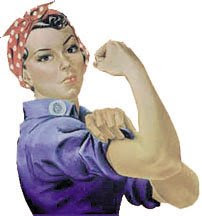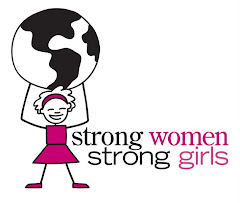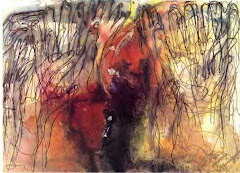http://tiquicia-cr.blogspot.com/2008/11/two-suspects-arrested-for-murder-of.html
http://www.amcostarica.com/103108.htm
http://www.ticotimes.net/dailyarchive/2008_11/1103083.htm
I'm writing on behalf of This is Ladies Night from my childhood home in Costa Rica, where I'm catching up with my parents and catching wind of the latest local news. I've attached a tragically powerful and particularly personal story for you to read. A special thanks to my mommadukes for helping me prepare this post.
Like many stories, this one is best understood by reading from a range of sources, which I've tried to include here. There is another interesting report on this story that was threaded on a newsblog post and could not be linked above, so please see the "comments" link at the bottom of this post for more information.
The jist of the story is that three female employees of the swankiest hotel/casino in my town were kidnapped walking home from work, robbed, raped, and shot. One woman died and the other two survived after being left for dead.
For those of us who travel in Costa Rica and the rest of Latin America, this is not the stuff of guide books and tourist propoganda. This is the kind of violent crime that was once unsual and astonishing, and which is now becoming frequent and commonplace. With the recent influx of Western tourists, expatriates and material wealth, the increased availability of good 'stuff' to steal has led to an increase in armed theft and violent crime. Analysts predict that the troubled global economy and consequent "desperate times" it will create will only exacerbate the situation.
Most of us gringos already know not to walk outside (day or night) when avoidable, not to wear jewelry, not to use our phones or ipods or cameras in public, and to avoid any signs of vulnerability, cluelessness, or foreginness. We can no longer take public cabs (they often perform joint robberies, rapes, and murders) and cannot take pirate cabs. Some of us know not to drive alone, let alone drive without a weapon in the car. All of these precautions seemed particularly necessary due to our gringoness, foreigness, whiteness--gringoness is perceived to mean richness so we've often been dubbed the most likely targets of such crimes.
But this crime was not a crime against gringos. It was a crime against three women who had access to gringo wealth and gringo power. The White House Hotel and Casino is notorious for its extremely wealthy clientelle, and therefore their employees have come to have access to a higher level of gratuities than employees of other establishments. Was this merely a crime of opportunity, though? I think not. This crime illuminates a history of oppression on the part of the ever-so-"entitled" gringos against Latin American indigenous peoples. It is symptomatic of the uneven distribution of wealth that empowers white, normative peoples and disenfranchises non-white, non-normative indigenous peoples. It reveals the dangers of unbridled, free-market, international economies. Finally, it demonstrates the rampant misogyny that characterizes so many societies and cultures in this world.
This crime can be considered a hate crime--an overkill, overly-violent crime that exceeded the purpose of robbery. The men forced the women into their car, robbed them, took them to an ATM and forced them to withdraw money for the men. Then the crime continued to include such violent mechanisms of reclaiming perceived "threatened" power as rape and murder.
This crime sends a message to all women to stay the hell off the streets. To run inside and lock our doors in fear. Costa Rican women who upset the traditional "gender" and "race" power hierarchy by pursuing financial independence through interacting with gringos are being told to beware--the system is being policed.
This culture of fear is initiating a kind of dehumanized savagery in even the most empathetic people. My own family expressed relief over hearing about a recent motorcycle robber who was soon tracked down after commiting theft and was beaten to death by a few men's bare hands in the middle of the street.
What do we do? What do we do!
Even the way the media reports on these stories enables Costa Rican misogyny. The earlier newspaper articles covering the White House Murders did not even report the possibility of rape in the attacks. It turns out that the men took the women to a short-stay motel designed to accomodate the sex-worker industry and were denied their petition to all rent one room together by the motel manager. The men said they did not want to have to pay for two rooms. Nevertheless, the women were in fact raped in the motel before being driven around my neighborhood and shot and left for dead in several locations, all within 4 to 8 kilometeres from my house.
One newspaper also mentioned in a three line sidebar that another woman in the neigborhood was murdered that same night. She was shot in her home five times, and nothing was taken from her or her domicile.
The point here is that the pervasive boogeyman that haunts women on the streets in Washington is the same one attacking, raping and murdering people in Costa Rica and all over the world. While this tragedy was sickeningly tragic, I can't say I'm surprised--almost everyone I know here has been violently robbed, assaulted, attacked, or both.
This is life in Costa Rica, and in so many places.
This has to change.
THE KIDS HAVE BEEN UP since seven-thirty
-
THE KIDS HAVE BEEN UP since seven-thirty playing machine amusements and
viewing toons. What a crime for them to be inside on such an excellent day,
you har...
11 years ago















.jpg)




.svg.png)

.jpg)
2 comments:
New murder might be continuation of crime spree
By Elyssa Pachico and Saray Ramírez Vindas
of the A.M. Costa Rica staff
Violent crime took center stage again Tuesday after bandits attacked three young women in a car in Escazú, killed one and distributed the victims in three different parts of the western metro area.
The early morning crime followed a weekend in which one man died in one of two bus stickups on the General Cañas highway. A key witness to another murder case died in an assassination in Alajuelita hours before the Escazú crime.
The three women worked in the Jazz Casino at the White House Hotel, an upscale gathering place for wealthy North Americans and rich Costa Ricans. It is high in the hills south of Escazú Centro.
The car with the three women was intercepted less than a half mile from the hotel after the women left work about 1:20 a.m., according to the Judicial Investigating Organization. Investigators believe that the goal of the bandits was to kill all three women with bullets to the head. But two survived, although one is in critical condition in Hospital México.
Jorge Rojas, director of the Judicial Investigating Organization, said this case is possibly related to a series of seemingly random, execution-style killings that began June 19. In each case, pairs of victims were killed by bullet wounds to the head, and then dumped several miles apart.
According to the investigators, Yerlín Marín Salazar, 24, a mother of a 6-year-old child, was the woman murdered by the bandits. Her body was found near dawn at a traffic circle in San Antonio de Belén.
A second victim was the dead woman's sister, Arelis, 27, the mother of two. She was found still conscious in an alley, one kilometer to the west of the Autopista Próspero Fernández. She received bullet wounds to the lower back and the neck, said investigators. She was being treated at the Hospital San Juan de Dios in San José.
A companion Angie Peraza Fernández, 25, also survived. She was the first found. That was about 2:30 a.m. near Autos Bolaños in Alto de las Palomas de Heredia, agents said. She received wounds to the cheek and the head and was being treated at Hospital México, agents said.
The bandits had abducted the women in hopes of getting them to withdraw money from automatic teller machines, but only one, believed to be the dead woman, carried her debit card.
Investigators said that one of the women called her
husband shortly before leaving the casino at 1 a.m. When she failed to appear at home, the husband went toward the White House Hotel, and discovered the vehicle abandoned on the road some 400 meters before the entrance to the hotel.
The abductions resemble the murder of one couple in August and two other couples in June.
Rolando Orozco Alpizar, 24, died where he was found near the fence of the Tobias Bolaños airport in Pavas either late Aug 20 or early Aug 21. He had a single bullet wound to the head. The body of his companion, Pamela Chávez Umaña, 22, turned up in a vacant lot not far from the U.S. Embassy. The man and woman had been dating and they last were seen Aug. 20 when they left a home to visit a restaurant. Orozco's car was found intact in front of the condominium where Ms. Chávez lived with her mother.
June 19 a journalist, Julio Acuña, 34, was found dead in a similar fashion in Alajuelita. His companion of the previous evening, Yoselin Rojas Chinchilla, 23, a teacher, was found dead in Escazú.
Gunshots to the head were the causes of death.
The same day investigators learned of two more deaths when bodies were found along route 32 in Tibás. Again the victims were a man and a woman. Three of these six victims were university students.
The killing in Alajuelita Monday night was of a woman who had avoided murder attempts three times in the past. Dead is Dunia María León Calderón, 48 who was a witness to the murder of Ariel José Rodríguez Salas, 19, who died last Dec. 14 at the same home. The woman refused to leave her home despite the murder tries.
The bus killing was about 10 p.m. Friday when bandits tried to stick up a bus bound to San José from Alajuela. Killed was Jorge Muñoz, a waiter who was a former policeman. One bandit saw Muñoz go for his own pistol and shot him once in the chest. Muñoz still managed to return fire and wounded a bandit. A suspect was detained a short time later at Hospital San Juan de Dios, said police.
The bus stickup was the second of the night along that stretch of road between Parque la Sabana and Hospital México. An Alajuela-bound bus suffered the same fate about 7 p.m.
All three major television news shows provided extensive coverage of the latest killing Tuesday night, in part because Rojas gave a press conference on the topic. Some stations also had taped coverage of the Cruz Roja putting the surviving Marín woman in an ambulance and investigators carrying off the body of the dead sister.
These stories are scary to hear, let alone think about happening to anyone in the world. It is awful that these things happen. I mean, dont these men think of their mothers? sisters? daughters? when they are doing these horrible things?! who deserves this? no one.
Post a Comment